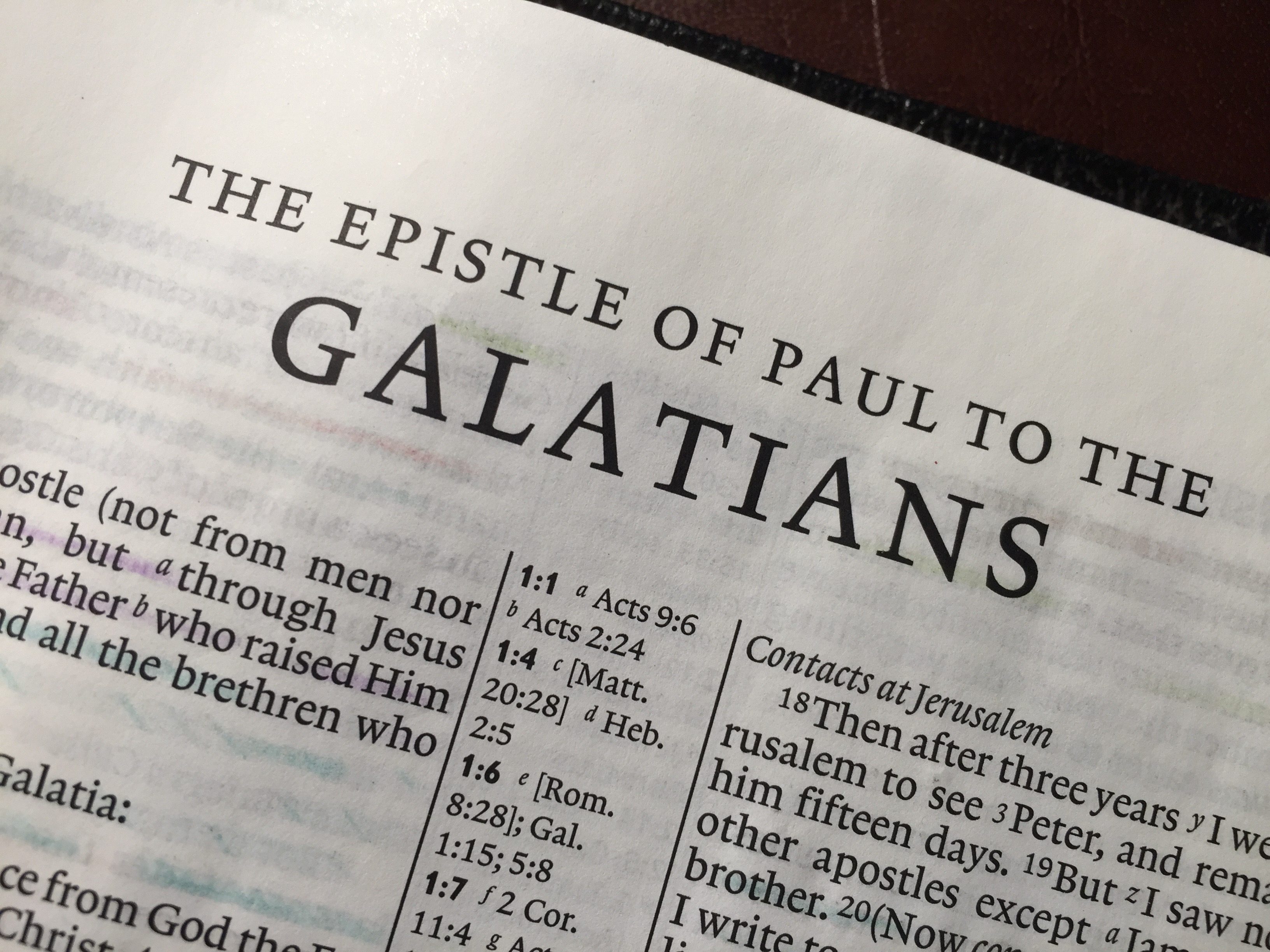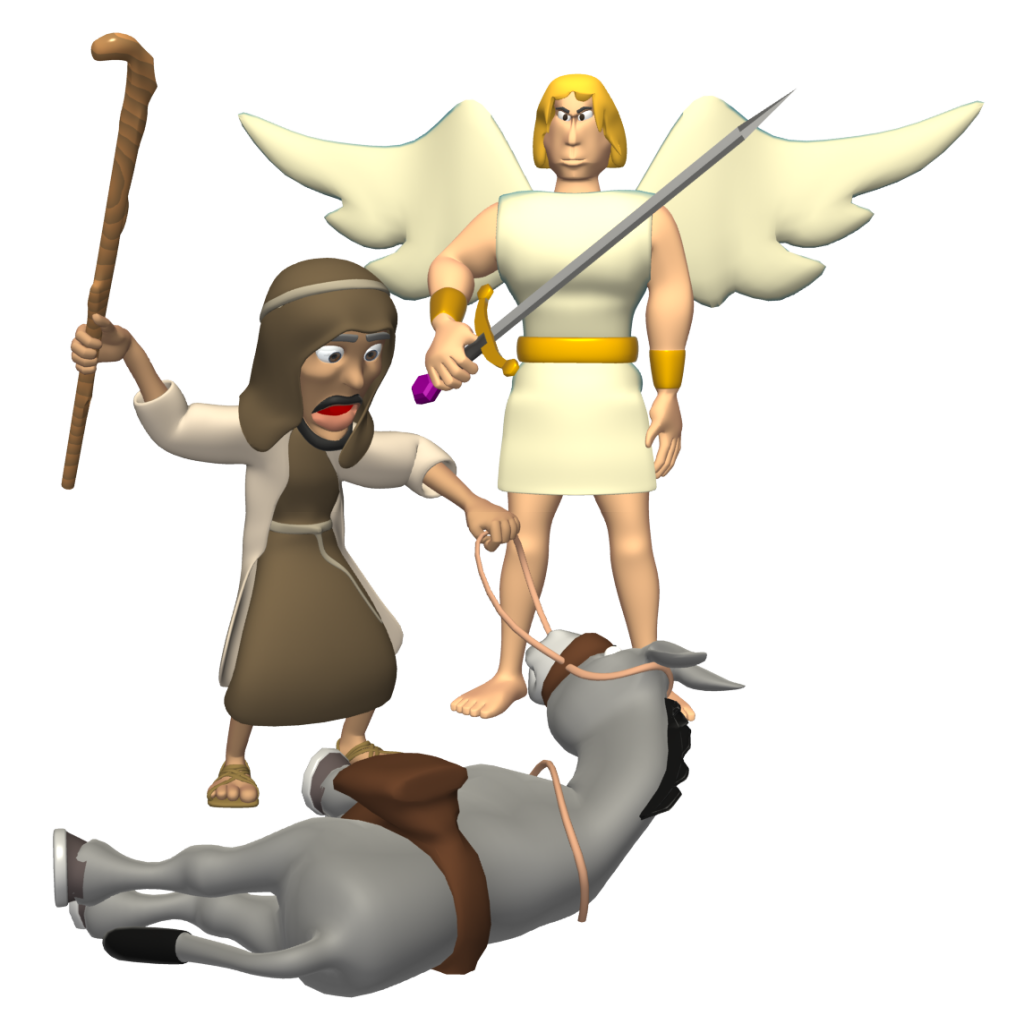
An Important Question
Let us first ask an important question that has far-reaching implication including whether you can trust the Bible and whether you are saved or not. In the Epistle to the Galatians, is Paul advocating the abrogation of the Torah-law as mainstream Christianity teaches?
This is the lens through which most Christians view Galatians. For example, the chapter subheadings in my NKJV Bible reveal the antitorah bias of mainstream Christianity. The heading above Galatians 2:11 reads, “No Return to the Law,” and the heading over Gal 3:10 reads, “ The Law Brings a Curse.” When Christians study their Bibles and encounter these subheadings that are written by men and not inspired by the Spirit, what are they to think? Most don’t questions the scholars who translate the Bible or the publishers sell the Bibles. Most readers will automatically thinks to themselves, “After all, these translators and publishers are Bible experts, they know more than I do, so who am I to question them?”
Interestingly, the same author of Galatians elsewhere admonishes us to, “Prove/test all things; hold fast to that which is good” (1 Thess 5:21). This is the responsibility of each saint as he studies the word of Elohim. Therefore, it behooves us to have a touch of intellectual scepticism when studying the Scriptures to insure that we’re not unwittingly putting our faith in the traditions and doctrines of men by which the word of Elohim has been made of none-effect (Mark 7:9, 13), and that we haven’t inherited lies that have been passed on down to us from our spiritual fathers (Jer 16:19). Let us instead be like the righteous Bereans who “searched the Scriptures daily to find out whether these things were so” (Acts 17:11).
Instead of looking at Galatians as a stand-alone book, let’s view it in the broader context of all the New Testament writers’ and Yeshua’s view of the Torah. After all, the Scriptures cannot contradict themselves. The Bible doesn’t lie, Elohim doesn’t change, and Yeshua declared that the Scriptures can’t be broken (or loosened, untied, dissolved, annulled, John 10:35).
In 1 Cor 11:1, Paul instructed us to imitate him as he imitated Messiah. So let’s follow Paul’s advice.
What did Yeshua teach and do vis-à-vis the Torah?
He never violated the Torah (or sinned), or else he couldn’t have been our sin-free Savior and taken upon himself the consequences or penalty of our sins, which is death.
Yeshua advocated Torah-obedience for his followers (Matt 5:17–19; John 14:15).
Paul goes on to tell us to imitate him as he imitates Yeshua. This includes obedience to the Torah.
Elsewhere, in many places, Paul advocates Torah obedience as we will see next.
How Did Paul View the Torah (“Law”)?
In answering this question, let us allow Paul to speak for himself in order to establish his predisposition with regard to the Torah-law. Was he a proponent or opponent of it? Several Scriptural quotations from his own pen should suffice in answering this question:
Wherefore the law [Torah] is holy, and the commandment holy, and just, and good. (Rom 7:12)
For we know that the law [Torah] is spiritual: but I am carnal, sold under sin. (Rom 7:14)
For I delight in the law [Torah] of Elohim after the inward man… (Rom 7:22)
What shall we say then? Shall we continue in sin [i.e., violation of the laws/Torah of YHVH, see 1 John 3:4], that grace may abound? Elohim forbid. How shall we, that are dead to sin, live any longer therein? (Rom 6:1–2)
Do we then make void the law through faith? Elohim forbid: yea, we establish the law. (Rom 3:31, Romans was written in about A.D. 56)
But we know that the law [Torah] is good, if a man use it lawfully…(1 Tim 1:8, First Timothy was written just before Paul’s martyrdom in about A.D. 66)
But if, while we seek to be justified by Messiah, we ourselves also are found sinners [i.e., violators of the law/Torah], is therefore Messiah the minister of sin [lawlessness/Torahlessness]? Elohim forbid. (Gal 2:17, Galatians was written between A.D. 55 to 56)
Toward the end of Paul’s life and ministry when, according to many Christian theologians, Paul was supposed to have already liberated the first-century believers from the “shackles and bondage” of the Torah-law, yet in the Book of Acts we read the following:
And when they heard it, they glorified YHVH, and said unto him, Thou seest, brother, how many thousands of Jews there are which believe [in Yeshua the Messiah]; and they are all zealous of the law [Torah]: And they are informed of thee, that thou teachest all the Jews which are among the Gentiles to forsake Moses, saying that they ought not to circumcise their children, neither to walk after the customs. What is it therefore? The multitude must needs come together: for they will hear that thou art come. Do therefore this that we say to thee: We have four men which have a vow on them; them take, and purify thyself with them, and be at charges with them, that they may shave their heads: and all may know that those things, whereof they were informed concerning thee, are nothing; but that thou thyself also walkest orderly, and keepest the law [Torah]. (Acts 20:20–24, written in about A.D. 58 to 60)
While he answered for himself, neither against the law [Torah] of the Jews, neither against the temple, nor yet against Caesar, have I offended any thing at all. (Acts 25: 8; Paul made this statement in a court of law about A.D. 62.)
And it came to pass, that after three days Paul called the chief of the Jews together: and when they were come together, he said unto them, Men and brethren, though I have committed nothing against the people, or customs of our fathers, [i.e., the Torah] yet was I delivered prisoner from Jerusalem into the hands of the Romans. (Acts 28:17, written about A.D. 63)
Viewing Galatians Through a Different Lens
In view of the fact that Paul instructed us to imitate him as imitated Yeshua, who was Torah observant, and in light of the fact in numerous places in Paul’s own writings and in the Book of Acts we see that Paul was Torah observant to the end of his life, what conclusion can we come to in light of these facts? Either the Bible is consistent, and the Torah is for all people for all time, or Paul was an inconsistent liar in telling us, on the one hand, to follow the Torah, and on the other hand, telling us not to obey it. Which is it? If Paul is inconsistent, then the truth of the Bible is inconsistent, the Scripture is broken, Yeshua is a liar and the Bible is a lie. Which one is it?
There is another answer to this dilemma. Perhaps the mainstream church has misinterpreted Paul in the Book of Galatians and has come to a skewed view in believing that Paul abrogates the Torah in Galatians. We take the position of the inerrancy of Scripture, that it can’t be broken, that Elohim and Yeshua don’t lie, and that Paul wasn’t a duplicitous schizophrenic. Instead of viewing Galatians as an antitorah tirade courtesy of Paul, maybe there is something else going on here that needs to be discovered—the real message of Galatians that in no way contradicts the rest of the Bible.
Stay tuned. There is more to follow on this subject…




